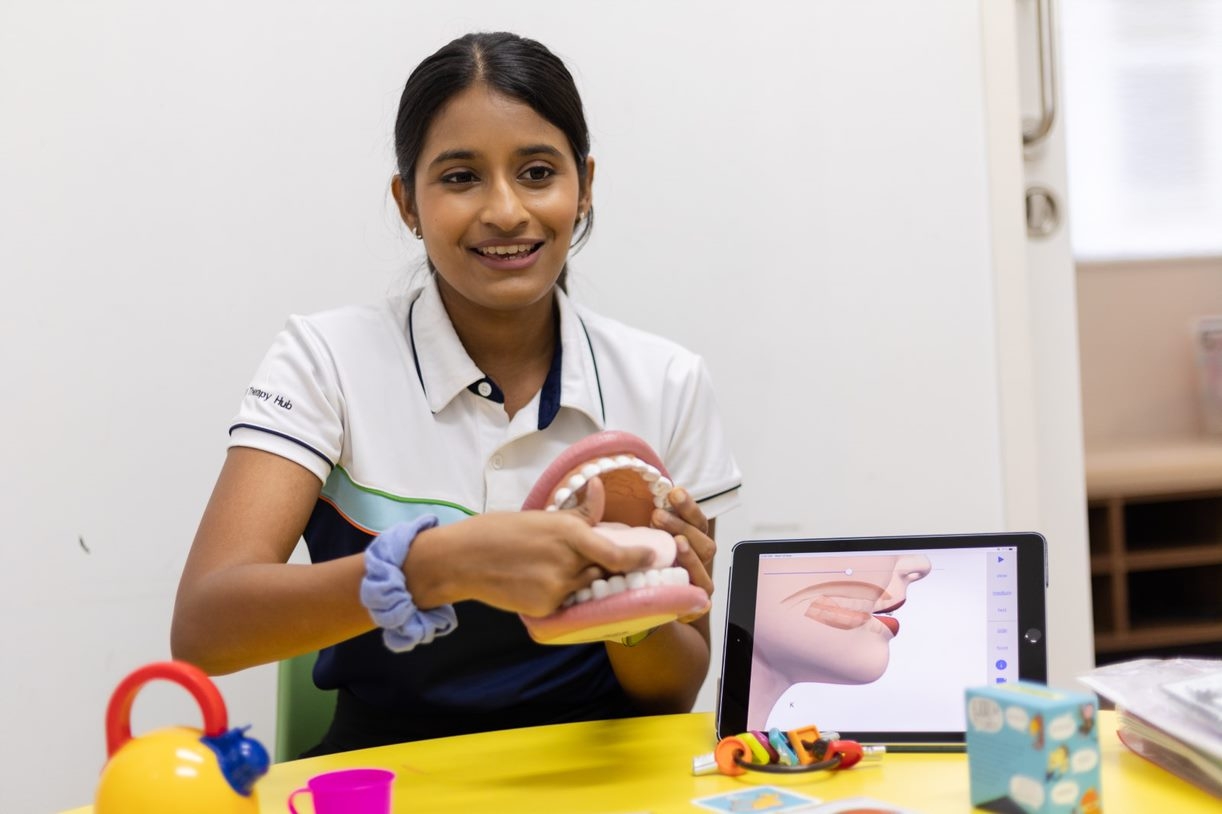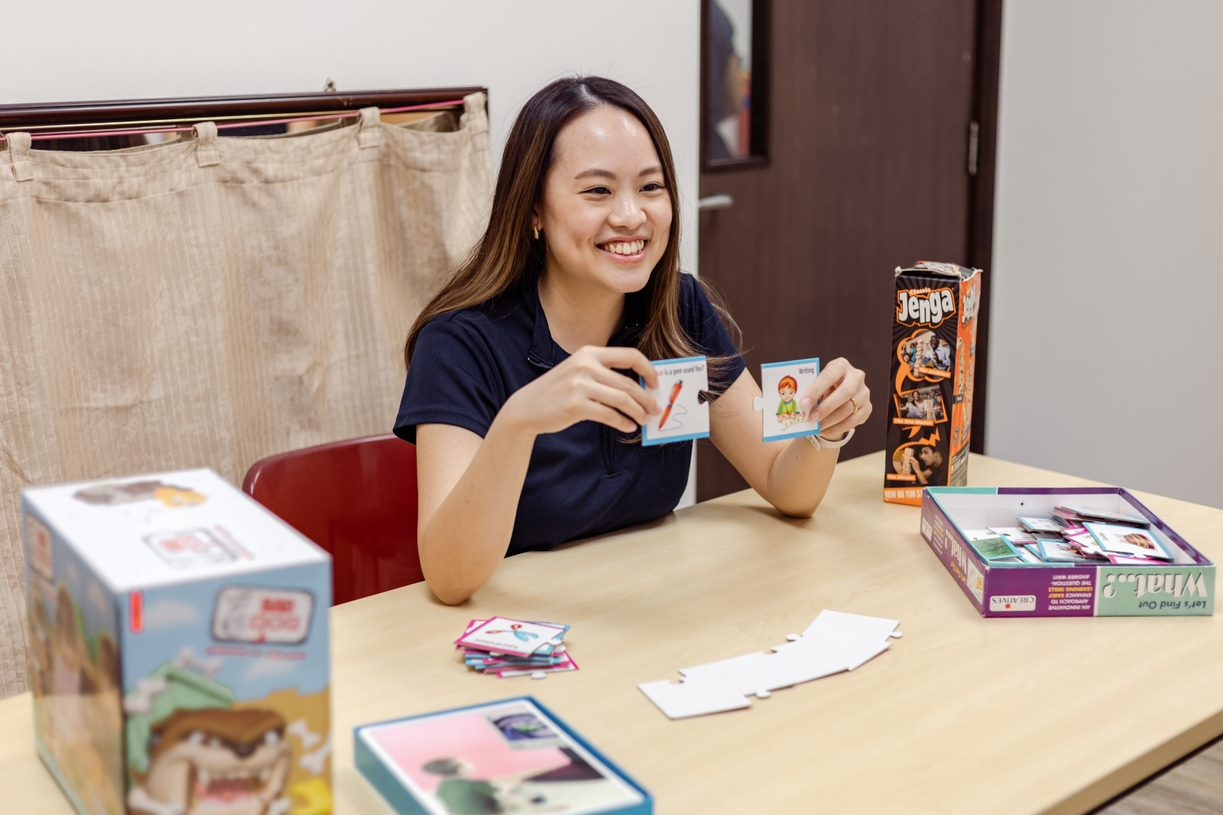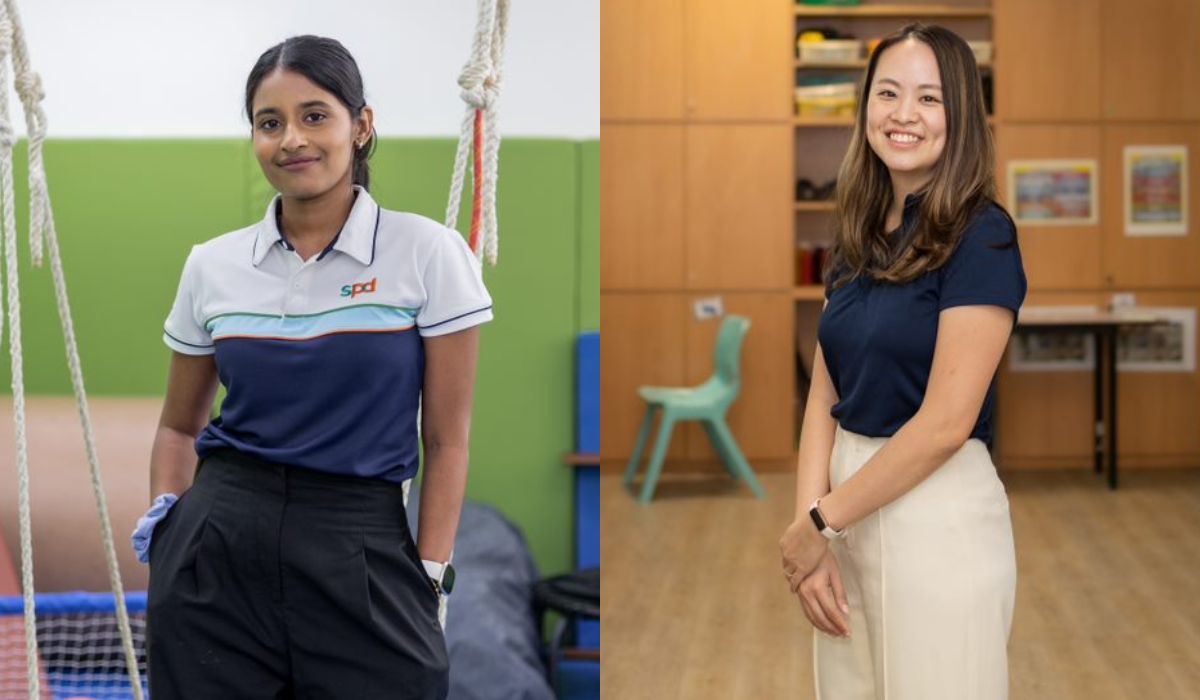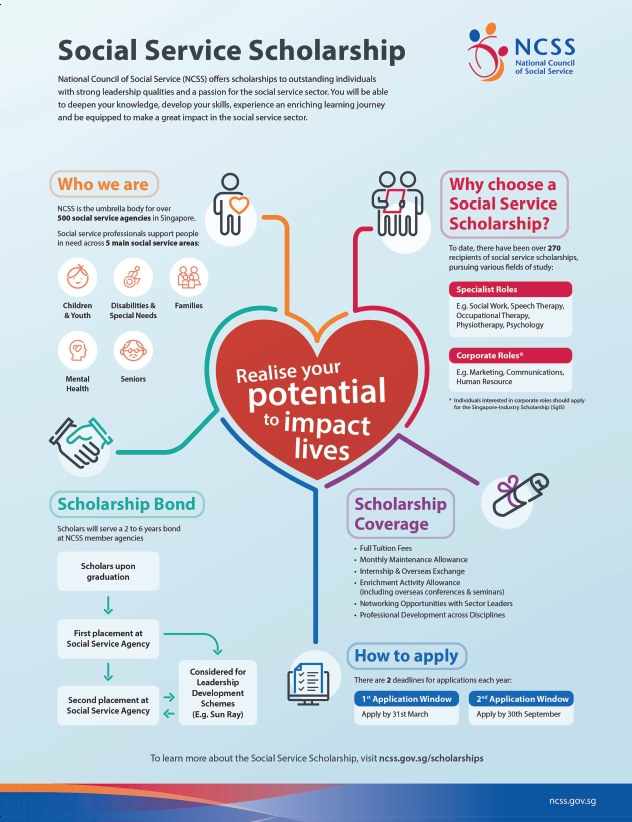Left: M Sharni helps children and youths verbalise better in her role as a Speech Therapist at the SPD Therapy Hub. She is a Social Service Scholar and holds a Master of Speech Language Pathology from NUS.
Right: Lydia Cheam provides psychological support and assessment for youths as a Psychologist at Rainbow Centre. With the Social Service Scholarship, she pursued a Master of Arts in Applied Psychology (Educational Psychology) from NIE.
Social Service Scholars, M Sharni and Lydia Cheam made the decision to this meaningful career route. They are part of the Social Service Tribe that comprises of more than 16,000 professionals working in over 500 social service agencies in Singapore.
Sharni is a Speech Therapist at SPD, a social service agency for adults, youth and children with disabilities, while Lydia is a Psychologist who works with youths with disabilities at Rainbow Centre, a social service agency that runs three special education schools.
Both Sharni and Lydia are recipients of the Social Service Scholarship, which is administered by the National Council of Social Services (NCSS), the umbrella body for social service agencies in Singapore.
We caught up with the duo, who shared with us their experiences in social service.

M Sharni
What sparked your interest in social service?
Sharni: During my volunteering experiences, I interacted with children with developmental needs and realised that some of them faced difficulties with using speech to communicate effectively, which led to frustrations and meltdowns. I really wanted to help them, so I started researching and that led me to discover speech therapy.
Lydia: Like Sharni, I was volunteering when I first got interested in psychology and a career in social service. When I was attached for a short stint at St Andrew’s Autism Centre for adults, I was touched by the interactions between staff and clients. There was a client who was about 10 years older than me at that time, telling me about how “people like him” were unable to go out to work. It motivated me to advocate for and journey alongside persons with special needs, to enable them to lead enriched and meaningful lives too.
How did you find out about the Social Service Scholarship?
Sharni: I came across the scholarship on the NCSS and BrightSparks website. I accepted this scholarship as it could provide me with greater learning opportunities and the chance to be rotated to different social service agencies, or different departments within a Therapy Hub (Therapy Hubs hire, train and deploy physiotherapists, occupational therapists and speech and language therapists to serve programmes in social service).
Lydia: I was working in NCSS when I discovered this scholarship. Through my work, I got a unique perspective into the work done by social workers, as well as the things that motivate them every single day. As I always wanted to work directly with persons with special needs, this scholarship gave me the exact avenue in which I could do so!
What opportunities did you receive with the Social Service Scholarship?
Sharni: The Social Service Scholarship allowed me to meet and network with other scholars studying Speech Language Therapy at other universities. The friendships I forged were helpful as we could discuss cases and personal experiences, as well as provide emotional and academic support for each other. The monthly allowance provided by NCSS was also a bonus in funding the purchase of any educational or therapy materials I needed in my academic journey.
Lydia: The scholarship helped to ensure that I did not have to worry about finances or how I would have to work part-time while studying, especially since my studies involved practicum attachments as well. Being in the programme enabled me to remain connected to other scholars and events where we had the opportunities to learn more about other subsectors within social service.

Lydia Cheam
Sharni, tell us more about your role as a speech therapist in a social service agency.
Sharni: I am currently a speech therapist at SPD’s Continuing Therapy Programme (CTP) serving children with communication difficulties and their caregivers in a one-to-one setting. I conduct assessments, set goals and provide intervention for a range of clients with various diagnoses from Special Education schools and mainstream schools.
Can you share with us a memorable experience that you have had?
Sharni: I worked with a four-year-old boy with developmental delays. He was unable to speak and had trouble expressing his needs and wants. I helped him verbalise speech sounds and eventually, the child was able to say his first meaningful word in a session. The joy on the child’s and parents’ faces was both memorable and rewarding to me. This made me realise the difference we can make to improve the lives of both children and their families.
Lydia, can you share with us more about your role as a psychologist?
Lydia: I’m a psychologist within the senior programme that consists of youths with multiple disabilities, from 15 to 18 years old. This may include intellectual disabilities, Autism Spectrum Disorder, physical disabilities, and so on. My role includes providing interventions, coaching teachers and parents, as well as conducting psychological assessments for graduating students to facilitate their next placement.
What is your most memorable experience so far?
Lydia: It was really fulfilling to journey alongside a parent, who found it difficult to understand her daughter’s challenges in expressing her frustration at first. Now, the parent is able to see her daughter develop the initiation to communicate with others using more appropriate means.
What advice would you give to those who are considering the Social Service Scholarship?
Sharni: This is one of the best scholarships available if you are interested in working in social service. It provides great career and learning opportunities, with the opportunity to be assigned to different agencies. The scholarship offers the platform to meet like-minded individuals who share a similar passion.
Lydia: Social service can be a place where you find fulfillment by realising that there is light even in the darkest of places, and that you can make that light so much brighter for others. Take on the Social Service Scholarship, so that you can be part of the Tribe that make lives count.



